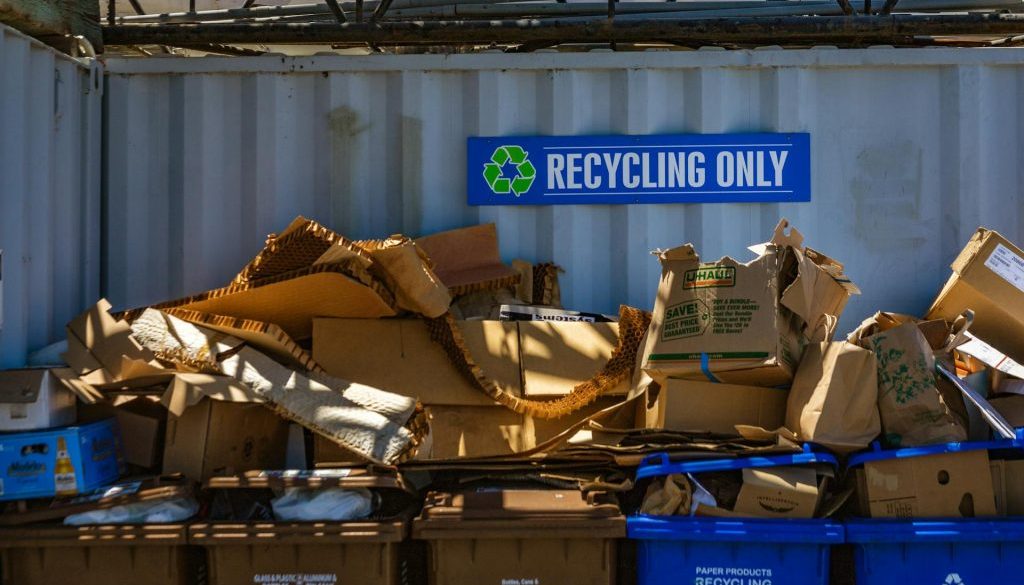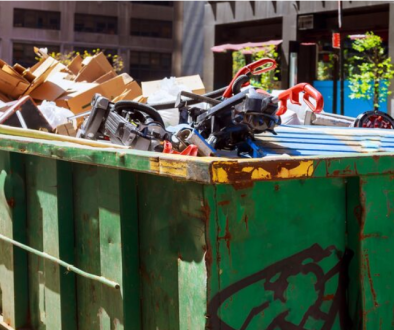Clearing out an office space can be a daunting task, especially with the volume of waste that often accumulates. From old furniture to electronic equipment, managing the disposal efficiently is essential for both cost savings and environmental responsibility. Utilising skips appropriately can make office clearances a much smoother and less stressful process.
Choosing the correct skip size is crucial to avoid overfilling or wasting space. Estimating the volume of waste generated can be tricky, but it is necessary to determine the best match for your needs. Overfilling a skip may lead to additional costs and logistical issues, while an undersized skip means repeated collections.
Sorting waste into categories like recyclables and non-recyclables is another vital step in ensuring a smooth clearance. Efficiently categorising waste not only makes disposal easier but supports eco-friendly practices by enhancing recycling opportunities. By approaching office clearance with a plan, you ensure that it is not just effective but also contributes positively to your environmental impact.
Understanding Skip Sizes for Office Clearance
Effective office clearance requires choosing the right skip size to handle the generated waste. Skips come in various sizes, each suited for different types of clearances. Small skips, such as mini skips, are perfect for minor office clean-outs, holding up to 2 cubic yards of waste. For medium-sized clearances, midi skips, with a capacity of 4 to 5 cubic yards, are a better fit, accommodating desk removals and a few pieces of furniture. Large office projects might require builder’s skips, which can hold 6 to 8 cubic yards of waste. For substantial clearances involving significant amounts of waste, roll-on roll-off skips, ranging from 15 to 40 cubic yards, might be necessary.
Estimating the volume of waste is essential in selecting the right skip. Consider the number of desks, chairs, electronic devices, and other materials being disposed of. Knowing the typical size and weight of these items can help gauge the required skip size, preventing both overfilling and underutilisation. Using a skip that matches your clearance needs ensures you manage costs effectively while adhering to disposal regulations.
Choosing the correct skip size also supports a well-organised clearance process, making waste collection more straightforward and efficient. By aligning skip size with project scale, you can avoid the hassle of needing additional skips or wasting space, helping facilitate a smoother clearance operation.
Sorting Office Waste Efficiently
An organised approach to sorting office waste significantly enhances disposal efficiency and environmental benefits. Start by categorising waste into recyclables and non-recyclables. Recyclables include paper, cardboard, plastics, and metals, which can be processed to create new materials. Non-recyclables should be disposed of according to local waste management guidelines.
When handling electronic waste, like old computers or printers, ensure they are kept apart from other materials. Many components can be recycled, but they need special handling to prevent environmental harm. Separate paper waste into secure and non-secure piles. Confidential papers should be shredded before disposal to protect sensitive information.
Efficient sorting reduces the total amount of waste sent to landfills, encouraging recycling and sustainable office practices. Taking the time to separate waste properly contributes to environmentally friendly clearances and can reduce waste management costs. By adopting these sorting strategies, offices can ensure that their clearance activities are both responsible and effective.
Eco-Friendly Waste Disposal Practices
Exploring eco-friendly ways to dispose of office waste is crucial to minimise environmental impact. Begin by prioritising recycling and reusing materials whenever possible. Encourage the use of recycled paper products and look for creative ways to repurpose old office furniture. This not only helps the planet but can also be cost-effective.
Specialised recycling facilities play a significant role in handling specific types of office waste, such as electronic items and hazardous materials. These facilities are equipped to safely process items like computers, batteries, and fluorescent lights, which require more attention than regular waste. Partnering with such facilities ensures that you adhere to best practices for recycling and waste management.
Engaging employees in eco-friendly practices during an office clearance can foster a culture of sustainability. Host workshops or information sessions to educate staff on the benefits and methods of recycling. Encourage participation by involving staff in decision-making or suggesting eco-friendly initiatives they would like to see implemented. By involving employees, you enhance awareness and create a shared responsibility for sustainable practices in the workplace.
Legal Considerations and Compliance
Complying with waste disposal regulations is essential to avoid legal issues and promote responsible environmental practices. Office waste includes various materials that might require special handling. Understanding the relevant regulations helps ensure compliance and the safe disposal of materials.
Electronic waste and confidential documents must be disposed of with care. Regulations often require these items to be destroyed or processed at authorised facilities to prevent data breaches or environmental hazards. Ensure that your office follows these guidelines to uphold privacy and safety standards.
The consequences of non-compliance can be severe. They may include heavy fines, legal action, and damage to your business’s reputation. Regular training and updates on waste regulations can help your team stay informed and compliant. By taking a proactive approach to legal requirements, you can confidently manage your office waste while contributing to environmental stewardship.
Conclusion
Effective office waste management requires thoughtful planning and commitment to sustainable practices. From selecting the appropriate skip size to ensuring efficient waste sorting, each step plays a vital role in promoting environmental responsibility. By focusing on recycling, reusing, and adhering to legal standards, you make a positive impact on the planet and foster a culture of sustainability within your organisation.
Engaging your team in these efforts not only supports environmental goals but also enhances team collaboration and awareness. Educating employees on eco-friendly practices improves their understanding and encourages them to take the initiative to reduce waste. This collective effort strengthens your business’s environmental commitment and sets a standard for others to follow.
Ready to tackle your office clearance sustainably? Enviro Skip Hire provides the expertise and resources you need for efficient and compliant waste management. Whether you’re clearing out old office furniture or sensitive electronic waste, our Stoke skip hire services ensure that you adhere to all legal requirements while supporting eco-friendly practices. Contact us today and take a step towards a greener future for your office!




